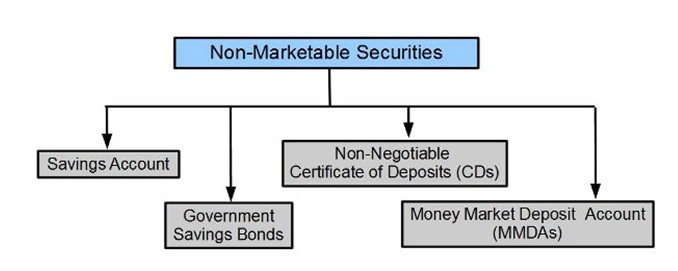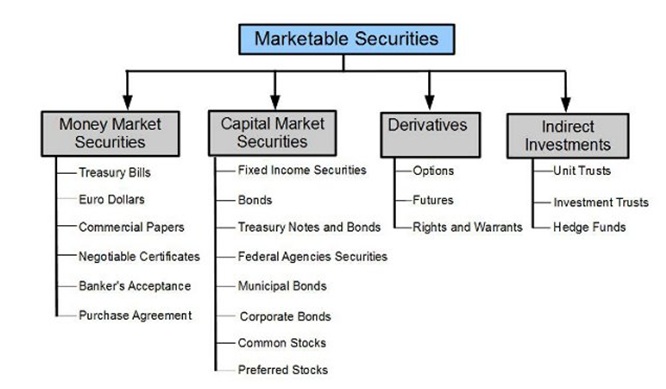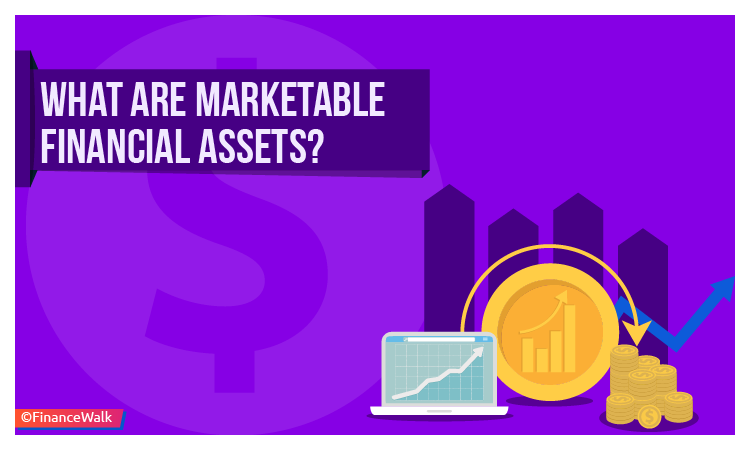This guide will help you understand Marketable vs Non Marketable Securities.
What Are Marketable Securities?
People invest for financial security.
Financial securities are instruments that guarantee a certain return on investment (ROI).
To be a successful investor and maximize monetary returns, you need to invest in both non-marketable and marketable financial assets.
It is essential to understand the difference between them to create a profitable investment portfolio.
Marketable vs Non Marketable Securities
Do you invest in these securities?
- How many of you have bank accounts?
- How many of you have invested in post office deposits?
- How many of you have Life Insurance policies?
- How many of you have invested in company deposits or in provident funds?
I am sure the majority of you have invested in at least one or more financial assets.
A bank account is perhaps the first choice of every investor.
What do you do when you open a bank account?
You go to a bank and meet bank officials.
They ask for a few verification documents and open your bank account.
What do you do when you invest in post office deposits? You go to the nearest post office and deposit your money.
To understand this simply, what is happening is that you are entering into a direct relationship with the financial security issuer (the bank, post office and others).
Now, what happens when you want to close a bank account? Do you sell it? No. You can’t.
This is because bank accounts and post office accounts are non-transferable and non-marketable. Hence, they are known as non-marketable securities.
What are other non-marketable financial assets?
Life insurance investments, bank accounts, company deposits, provident fund deposits are all non-marketable financial assets because you can’t sell or market them because there’s no secondary market available for them.
Therefore, what are marketable securities?
Quite the opposite – marketable financial assets are those assets which are easily traded and a secondary market is available for them.
Equity shares, bonds, mutual funds and others are examples of marketable securities.
There is no direct relationship between the issuer and the investor in case of non-marketable securities.
Since there is a secondary market or a middleman available, buyers and sellers are not required to meet physically. The assets are transferable and marketable.
As an investor or an analyst, you need to be aware of this distinction.
Further, it is important to know about different financial assets available in the market in order to build a healthy financial portfolio as an investor and/or perform accurate market analysis in the capacity of a financial analyst, aiding a company to take result-oriented decisions.
Here is a detailed representation of non- marketable securities.

The term Savings Account is self-explanatory.
The account-holder earns interest on the deposited amount.
Government Savings Bonds are tax certificates issued by the government, offering a specific interest rate on invested money.
Non-Negotiable Certificate of Deposits include instruments like fixed deposits, recurring deposits, provident fund deposits and other fixed-term securities.
Money Market Deposit Accounts are offered by banks and other financial institutions at a higher interest rate for higher deposits and limited withdrawals.
In contrast, here is a representation of marketable financial assets.

I won’t go into detail of all these marketable securities.
A brief overview will suffice.
Money Market Securities comprise of highly liquid assets and are in the form of short-term bonds which are issued by large financial institutions and governments.
People with a low or medium-risk appetite can indulge in this asset creation through mutual funds.
Capital Market Securities are common company stocks which are used mostly by the general public for investments.
The duration of investment is long-term and returns are possibly higher.
Derivatives are those marketable securities whose performance depends on the performance of other invested securities.
The value of derivatives is based on these other securities.
Futures and options trading and shareholder owners are part of this.
Indirect Investments are those where shares of an investment company are purchased.
Hedge funds, investment trusts like mutual funds and unit trusts are included in this.
Endnote
Investment in marketable securities is a risky venture; however, let not the risk dissuade you.
Almost all of us invest in non-marketable assets but the marketable securities are worth looking into, even for a small or medium investor.







Very Good Information. Thanks
Thanks for the relevant informations
Thanks